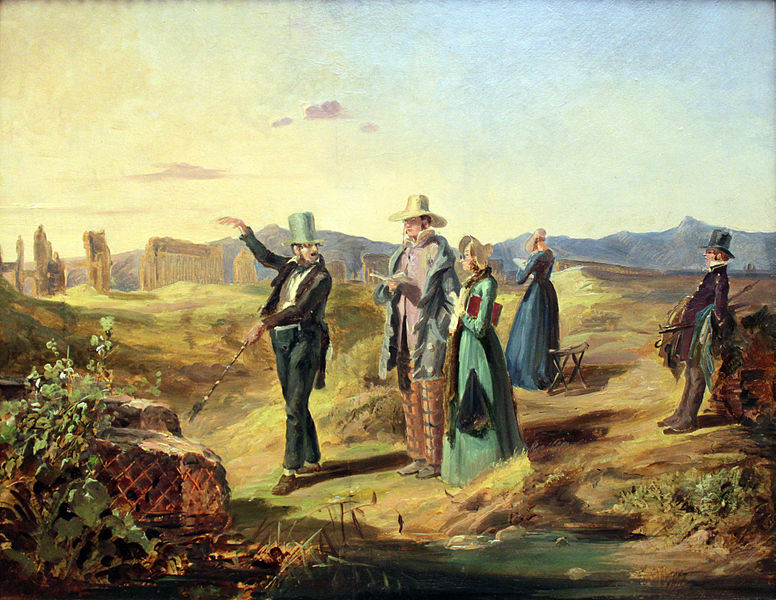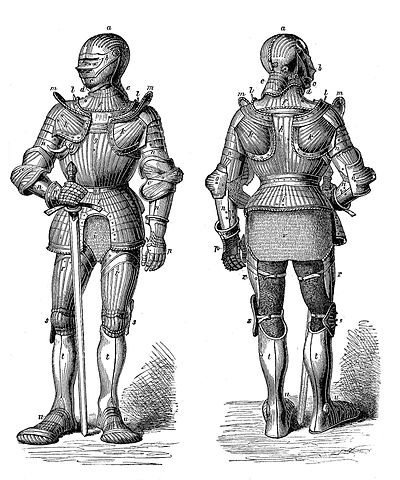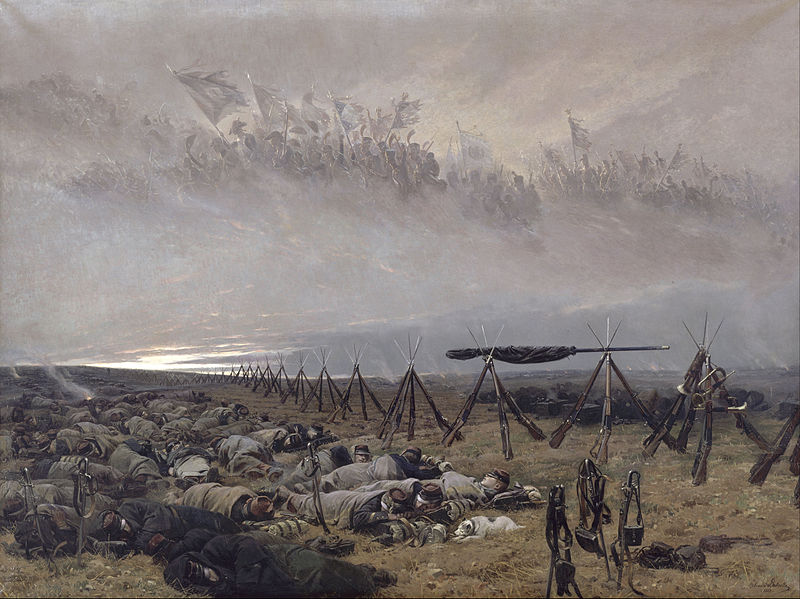
Someone said to Socrates that a certain man had grown no better by his travels.
‘I should think not,’ he said; ‘he took himself along with him.’
— Montaigne, Essays

Someone said to Socrates that a certain man had grown no better by his travels.
‘I should think not,’ he said; ‘he took himself along with him.’
— Montaigne, Essays
Epigrams of poet Ralph Hodgson:
And “The ‘last word’ is only the latest.”
Above is the only known film footage of Mark Twain, shot at Twain’s Connecticut home in 1909. The women are thought to be his daughters Clara and Jean.
“Three blokes walk into a pub. One of them is a little bit stupid, and the whole scene unfolds with a tedious inevitability.” — Bill Bailey
Aphorisms of Sir Arthur Helps (1813-1875):
“A very useful book might be written with the sole object of advising what parts of what books should be read. It should not be a book of elegant extracts, but should merely refer to the passages which are advised to be read. It might also indicate what are the chief works upon any given subject. For example, take rent; the important passages in Adam Smith, Ricardo, Jones, Mill, and other writers, should be referred to.”
From Thoughts in the Cloister and the Crowd, 1835.
“Many highly intelligent people are poor thinkers. Many people of average intelligence are skilled thinkers. The power of a car is separate from the way the car is driven.” — Edward de Bono

07/17/2024 UPDATE: Several readers point out, correctly, that carbon is hardly the only elemental “chemical word” — indeed, some elements can be spelled in multiple ways. I’ve assembled this list from multiple contributions:
ArSeNiC ArSeNIC
AsTaTiNe
BiSmUTh BISmUTh
CArBON CaRbON
CoPPEr COPPEr
IrON
KrYPtON
NeON
OGaNeSSON OGaNEsSON
PHoSPHoRuS PHOSPHoRuS PHOsPHoRuS PHoSPHORus PHOSPHORuS PHOsPHORuS
SiLiCoN SiLiCON SILiCON SILiCoN
SiLvEr SILvEr
TeNNeSSINe TeNNEsSiNe TeNNEsSINe
TiN
XeNON XeNoN
TiN is even a valid compound, titanium nitride.
Of these Borgmann had found arsenic, carbon, iron, neon, phosphorus, silicon, and xenon when he wrote in 1974, “surely the most unusual is CARBON which can be factored into elements not including itself.” But that property wasn’t unique even within his limited list, as can be seen above.
Many thanks to readers Gareth McCaughan, Catalin Voinescu, and Eric Harshbarger for writing in about this.
“What is research but a blind date with knowledge?” — Will Henry

“Did anyone ever have a boring dream?” — Ralph Hodgson

Proverbs from around the world:
And “It is easy to throw a stone into the Danube, but rather difficult to get it out.” (Yugoslavia)